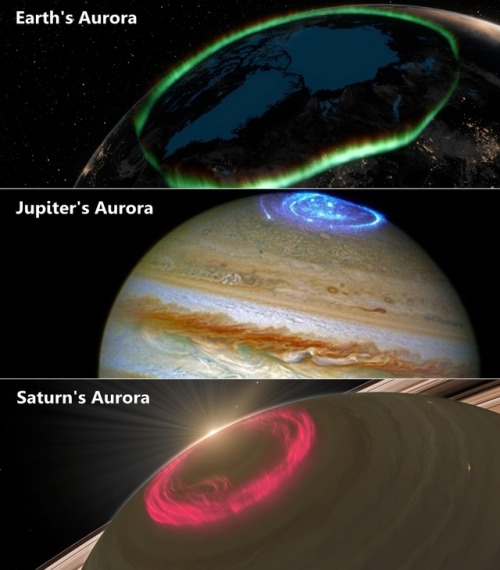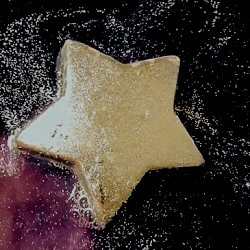To The Moon.

To the moon.
Source: @redditSpacePorn (Twitter)
More Posts from Nyxs-knight and Others
Instead of going “I can’t do that, it’ll ruin my makeup” go wash your makeup off. Instead of going “I can’t, it’ll ruin my clothes” change into something comfortable and practical that can handle a couple spots. Instead of going “no, I can’t walk that far in heels” change into practical shoes. Instead of going “I can’t, I haven’t shaved” remember that nobody but yourself is going to notice a little leg fluff. Instead of going “no, it’ll ruin my hair” just let it ruin your hair and laugh it off. Don’t let the prison of femininity get in the way of having fun and experiencing something new.






A woman isn’t a doll by Julia Tsvetkova
real women have body hair – and it’s normal real women have periods – and it’s normal real women have body fat – and it’s normal real women have imperfect skin – and it’s normal real women have wrinkles and grey hair – and it’s normal real women have muscles – and it’s normal
On 20 November 2019 Russian activist, artist and feminist Julia Tsvetkova was arrested and put on house arrest two days later, charged with “production and dissemination of pornographic materials”. She was also accused of spreading “homosexual propaganda” to minors, and was later fined.
On 9 June, prosecutors confirmed that Tsvetkova was still due to stand trial, provoking real life protests and online outrage. Tsvetkova would be forced to answer for several cartoonish drawings of naked women with captions that read “Real women have body fat – and it’s normal” or “Real women have wrinkles and grey hair – and it’s normal”.
If convicted, Julia faces prison terms up to 6 years.
(source)
Celebrating Women’s History Month: Most Recent Female Astronauts
For Women’s History Month, NASA and the International Space Station celebrate the women who conduct science aboard the orbiting lab. As of March 2019, 63 women have flown in space, including cosmonauts, astronauts, payload specialists, and space station participants. The first woman in space was Russian cosmonaut Valentina Tereshkova who flew on Vostok 6 on June 16, 1963. The first American woman in space, Sally Ride, flew aboard the Space Shuttle STS-7 in June of 1983.
If conducted as planned, the upcoming March 29 spacewalk with Anne McClain and Christina Koch would be the first all-female spacewalk. Women have participated in science on the space station since 2001; here are the most recent and some highlights from their scientific work:
Christina Koch, Expedition 59

Christina Koch (pictured on the right) becomes the most recent woman in space, launching to the space station in mid-March to take part in some 250 research investigations and technology demonstrations. Koch served as station chief of the American Samoa Observatory and has contributed to the development of instruments used to study radiation particles for the Juno mission and the Van Allen Probe.
Anne McClain, Expedition 57/58, 59

Flight Engineer Anne McClain collects samples for Marrow, a long-term investigation into the negative effects of microgravity on the bone marrow and blood cells it produces. The investigation may lead to development of strategies to help prevent these effects in future space explorers, as well as people on Earth who experience prolonged bed rest. McClain holds the rank of Lieutenant Colonel as an Army Aviator, with more than 2,000 flight hours in 20 different aircraft.
Serena M. Auñón-Chancellor, Expedition 56/57

Serena Auñón-Chancellor conducts research operations for the AngieX Cancer Therapy inside the Microgravity Science Glovebox (MSG). This research may facilitate a cost-effective drug testing method and help develop safer and more effective vascular-targeted treatments. As a NASA Flight Surgeon, Auñón-Chancellor spent more than nine months in Russia supporting medical operations for International Space Station crew members.
Peggy Whitson, Expeditions 5, 16, 50, 51/52

Astronaut Peggy Whitson holds numerous spaceflight records, including the U.S. record for cumulative time in space – 665 days – and the longest time for a woman in space during a single mission, 289 days. She has tied the record for the most spacewalks for any U.S. astronaut and holds the record for the most spacewalk time for female space travelers. She also served as the first science officer aboard the space station and the first woman to be station commander on two different missions. During her time on Earth, she also is the only woman to serve as chief of the astronaut office. Here she works on the Genes in Space-3 experiment, which completed the first-ever sample-to-sequence process entirely aboard the International Space Station. This innovation makes it possible to identify microbes in real time without having to send samples back to Earth, a revolutionary step for microbiology and space exploration.
Kate Rubins, Expedition 48/49

The Heart Cells investigation studies the human heart, specifically how heart muscle tissue contracts, grows and changes its gene expression in microgravity and how those changes vary between subjects. In this image, NASA astronaut Kate Rubins conducts experiment operations in the U.S. National Laboratory. Rubins also successfully sequenced DNA in microgravity for the first time as part of the Biomolecule Sequencer experiment.
Samantha Cristoforetti, Expedition 42/43

The first Italian woman in space, European Space Agency (ESA) astronaut Samantha Cristoforetti conducts the SPHERES-Vertigo investigation in the Japanese Experiment Module (JEM). The investigation uses free-flying satellites to demonstrate and test technologies for visual inspection and navigation in a complex environment.
Elena Serova, Expedition 41/42

Cosmonaut Elena Serova, the first Russian woman to visit the space station, works with the bioscience experiment ASEPTIC in the Russian Glavboks (Glovebox). The investigation assessed the reliability and efficiency of methods and equipment for assuring aseptic or sterile conditions for biological investigations performed on the space station.
Karen Nyberg, Expedition 36/37

NASA astronaut Karen Nyberg sets up the Multi-Purpose Small Payload Rack (MSPR) fluorescence microscope in the space station’s Kibo laboratory. The MSPR has two workspaces and a table used for a wide variety of microgravity science investigations and educational activities.
Sunita Williams, Expeditions 32/33, 14/15

This spacewalk by NASA astronaut Sunita Williams and Japan Aerospace Exploration Agency (JAXA) astronaut Aki Hoshide, reflected in Williams’ helmet visor, lasted six hours and 28 minutes. They completed installation of a main bus switching unit (MBSU) and installed a camera on the International Space Station’s robotic Canadarm2. Williams participated in seven spacewalks and was the second woman ever to be commander of the space station. She also is the only person ever to have run a marathon while in space. She flew in both the space shuttle and Soyuz, and her next assignment is to fly a new spacecraft: the Boeing CST-100 Starliner during its first operational mission for NASA’s Commercial Crew Program.
Cady Coleman, Expeditions 26/27

Working on the Capillary Flow Experiment (CFE), NASA astronaut Catherine (Cady) Coleman performs a Corner Flow 2 (ICF-2) test. CFE observes the flow of fluid in microgravity, in particular capillary or wicking behavior. As a participant in physiological and equipment studies for the Armstrong Aeromedical Laboratory, she set several endurance and tolerance records. Coleman logged more than 4,330 total hours in space aboard the Space Shuttle Columbia and the space station.
Tracy Caldwell Dyson, Expedition 24

A system to purify water for use in intravenous administration of saline would make it possible to better treat ill or injured crew members on future long-duration space missions. The IVGEN investigation demonstrates hardware to provide that capability. Tracy Caldwell Dyson sets up the experiment hardware in the station’s Microgravity Science Glovebox (MSG). As noted above, she and Shannon Walker were part of the first space station crew with more than one woman.
Shannon Walker, Expedition 24/25

Astronaut Shannon Walker flew on Expedition 24/25, a long-duration mission that lasted 163 days. Here she works at the Cell Biology Experiment Facility (CBEF), an incubator with an artificial gravity generator used in various life science experiments, such as cultivating cells and plants on the space station. She began working in the space station program in the area of robotics integration, worked on avionics integration and on-orbit integrated problem-solving for the space station in Russia, and served as deputy and then acting manager of the On-Orbit Engineering Office at NASA prior to selection as an astronaut candidate.
Stephanie Wilson, STS-120, STS-121, STS-131

Astronaut Stephanie Wilson unpacks a Microgravity Experiment Research Locker Incubator II (MERLIN) in the Japanese Experiment Module (JEM). Part of the Cold Stowage Fleet of hardware, MERLIN provides a thermally controlled environment for scientific experiments and cold stowage for transporting samples to and from the space station. Currently serving as branch chief for crew mission support in the Astronaut Office, Wilson logged more than 42 days in space on three missions on the space shuttle, part of the Space Transportation System (STS).
Other notable firsts:
• Roscosmos cosmonaut Svetlana Savitskaya, the first woman to participate in an extra-vehicular activity (EVA), or spacewalk, on July 25, 1984
• NASA astronaut Susan Helms, the first female crew member aboard the space station, a member of Expedition 2 from March to August 2001
• NASA astronaut Peggy Whitson, the first female ISS Commander, April 2008, during a six-month tour of duty on Expedition 16
• The most women in space at one time (four) happened in 2010, when space shuttle Discovery visited the space station for the STS-131 mission. Discovery’s crew of seven included NASA astronauts Dorothy Metcalf-Lindenburger and Stephanie Wilson and Japan Aerospace Exploration Agency (JAXA) astronaut Naoko Yamazaki. The space station crew of six included NASA astronaut Tracy Caldwell Dyson.
• Susan Helms shares the record for longest single spacewalk, totaling 8 hours 56 minutes with fellow NASA astronaut Jim Voss.
• Expedition 24 marked the first with two women, NASA astronauts Shannon Walker and Tracy Caldwell Dyson, assigned to a space station mission from April to September, 2010
• The 2013 astronaut class is the first with equal numbers of women and men.
• NASA astronaut Anne McClain became the first woman to live aboard the space station as part of two different crews with other women: Serena Auñón-Chancellor in December 2018 and currently in orbit with Christina Koch.
Make sure to follow us on Tumblr for your regular dose of space: http://nasa.tumblr.com

a lesbian comic depicting butch women, 1994

The tails of Comet NEOWISE!! Comet’s usually have 2 tails that always point away from the Sun.
Here, NEOWISE’s blue ion tail on the left points directly away from the Sun and is pushed out by the flowing and charged solar wind. Structure in the ion tail comes from different rates of expelled blue-glowing ions from the comet's nucleus, as well as the always changing structure of our Sun's wind.
The other tail, the dust tail, is pushed out by sunlight, but curves towards its orbital path as heavier dust particles are better able to resist this light pressure. Comet NEOWISE's (Comet C/2020 F3) impressive dust-tail striations are not fully understood, as yet, but likely related to rotating streams of sun-reflecting grit liberated by melting ice on its 5-kilometer wide nucleus. Image Credit & Copyright: Zixuan Lin (Beijing Normal U.)

Artistic conception of the auroras os Saturn and Earth (jupiter’s image is real - ultraviolet) Instagram: wonders_of_the_cosmos
Magnetic monster NGC 1275

This stunning image of NGC 1275 was taken using the NASA/ESA Hubble Space Telescope’s Advanced Camera for Surveys in July and August 2006. It provides amazing detail and resolution of the fragile filamentary structures, which show up as a reddish lacy structure surrounding the central bright galaxy NGC 1275. These filaments are cool despite being surrounded by gas that is around 55 million degrees Celsius hot. They are suspended in a magnetic field which maintains their structure and demonstrates how energy from the central black hole is transferred to the surrounding gas.
By observing the filamentary structure, astronomers were, for the first time, able to estimate the magnetic field’s strength. Using this information they demonstrated how the extragalactic magnetic fields have maintained the structure of the filaments against collapse caused by either gravitational forces or the violence of the surrounding cluster during their 100-million-year lifetime.
This is the first time astronomers have been able to differentiate the individual threads making up such filaments to this degree. Astonishingly, they distinguished threads a mere 200 light-years across. By contrast, the filaments seen here can be a gaping 200 000 light-years long. The entire image is approximately 260 000 light-years across.
Also seen in the image are impressive lanes of dust from a separate spiral galaxy. It lies partly in front of the giant elliptical central cluster galaxy and has been completed disrupted by the tidal gravitational forces within the galaxy cluster. Several striking filaments of blue newborn stars are seen crossing the image.
Credit:
NASA, ESA and Andy Fabian (University of Cambridge, UK)
What the hell are Comets, Meteroids, and Asteroids?
SEE BELOW TO FIND OUT
COMET

Made of ice, rock and dust.
They originate outside our solar system
HUGE. like miles wide. Big boys.
They orbit the sun.
They have that tail thingy.
METEOROID

Small. Like could be a grain of sand
Rocky or metal
They originate from comets or asteroids aka they are the bits that fall off
They orbit the sun
Can fall to earth but then they are called a meteor (if they vaporize in the atmosphere) or a meteorite (if they hit earth)
ASTEROID

Also made of rock or metal
Are larger than a meteoroid and historically if an object is larger than 10 meters across, they are called an asteroid
Also orbit the sun because the sun is so damn popular but they are generally between Mars and Jupiter









Dark space stimboard for @frankiesscottage
🚀 x x x - x x x - x x x 🚀
-
 perfected-chaos1112 reblogged this · 3 years ago
perfected-chaos1112 reblogged this · 3 years ago -
 47731011 liked this · 3 years ago
47731011 liked this · 3 years ago -
 coolbobby1968 liked this · 3 years ago
coolbobby1968 liked this · 3 years ago -
 daydreamer-wishingonstars reblogged this · 3 years ago
daydreamer-wishingonstars reblogged this · 3 years ago -
 roughriderinthesky liked this · 3 years ago
roughriderinthesky liked this · 3 years ago -
 scrumptiouslyhopefultimetravelme liked this · 3 years ago
scrumptiouslyhopefultimetravelme liked this · 3 years ago -
 daydreamer-wishingonstars reblogged this · 3 years ago
daydreamer-wishingonstars reblogged this · 3 years ago -
 evilsteve liked this · 4 years ago
evilsteve liked this · 4 years ago -
 stefan13exe liked this · 4 years ago
stefan13exe liked this · 4 years ago -
 andrewhyderphotography liked this · 4 years ago
andrewhyderphotography liked this · 4 years ago -
 ashleylynnxoxox reblogged this · 4 years ago
ashleylynnxoxox reblogged this · 4 years ago -
 space0moon-and0watercolor liked this · 4 years ago
space0moon-and0watercolor liked this · 4 years ago -
 nlockett reblogged this · 4 years ago
nlockett reblogged this · 4 years ago -
 nlockett liked this · 4 years ago
nlockett liked this · 4 years ago -
 ryulius liked this · 4 years ago
ryulius liked this · 4 years ago -
 ziloforsure liked this · 4 years ago
ziloforsure liked this · 4 years ago -
 flxtbxsh liked this · 4 years ago
flxtbxsh liked this · 4 years ago -
 el-eco-de-mis-letras03 liked this · 4 years ago
el-eco-de-mis-letras03 liked this · 4 years ago -
 fantomias liked this · 4 years ago
fantomias liked this · 4 years ago -
 acetone3 liked this · 4 years ago
acetone3 liked this · 4 years ago -
 acetone3 reblogged this · 4 years ago
acetone3 reblogged this · 4 years ago -
 impiusangelus liked this · 4 years ago
impiusangelus liked this · 4 years ago -
 strawberrymanhwa liked this · 4 years ago
strawberrymanhwa liked this · 4 years ago -
 h-9s-k liked this · 4 years ago
h-9s-k liked this · 4 years ago -
 thomasbrisenio liked this · 4 years ago
thomasbrisenio liked this · 4 years ago -
 w3irdoartist liked this · 4 years ago
w3irdoartist liked this · 4 years ago -
 veryeggroadnickel liked this · 4 years ago
veryeggroadnickel liked this · 4 years ago -
 as-the-stars-foretold liked this · 4 years ago
as-the-stars-foretold liked this · 4 years ago -
 psychip reblogged this · 4 years ago
psychip reblogged this · 4 years ago -
 colbydel liked this · 4 years ago
colbydel liked this · 4 years ago -
 scififan1963 reblogged this · 4 years ago
scififan1963 reblogged this · 4 years ago -
 scififan1963 liked this · 4 years ago
scififan1963 liked this · 4 years ago -
 taniag-blog2 liked this · 4 years ago
taniag-blog2 liked this · 4 years ago -
 lukesporttales liked this · 4 years ago
lukesporttales liked this · 4 years ago -
 wanderingredleaves liked this · 4 years ago
wanderingredleaves liked this · 4 years ago -
 akiiminoo-blog liked this · 4 years ago
akiiminoo-blog liked this · 4 years ago

